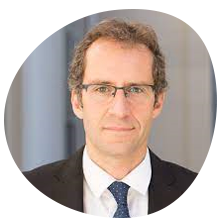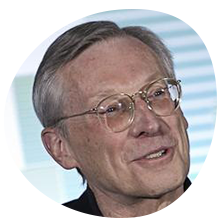Virtual Fireside Chat Open to the Public
Are Climate Change, War in Ukraine, Inflation, and Fossil Fuel Supply Shortages Driving a Resurgence in Nuclear Energy?
With the Russian cutoff of natural gas to Europe and the trends toward de-globalization and supply chain security, the issue of energy security has risen to the top of national agendas throughout the world. California’s legislature and governor have approved a 5 year extension of the state’s last nuclear plant, Diablo Canyon, which generates 8% of the state’s energy. Japan’s prime minister has called for re-starting its nuclear plants and for a broader policy shift toward nuclear. Germany is postponing the closure of two of its remaining nuclear plants, suggesting perhaps a second Energiewende (completing a U-turn?). France is considering up to 14 new reactors. China has 21 nuclear plants under construction. In the US, the Inflation Reduction Act provides subsidies for existing and advanced nuclear reactors. Many other countries are planning new reactors, too. These moves indicate a growing consensus that the world economy needs every megawatt of nuclear energy available.
Nearly every model of global energy demand points to the important role nuclear power must play to reduce carbon emissions. By how much can nuclear power reduce the world’s carbon emissions? Or, can renewables do it all?
“It is not a choice between the two. #solar will grow as fast as it physically can and won’t be 100%. Same with #wind, #geothermal, #hydro, #BiomassCCS, #efficiency, etc. You still have a huge political/resiliency hole that #nuclear has to fill. Every model shows it. #cleanfirm” — Jigar Shah (@JigarShahDC) August 27, 2022
The International Energy Agency projects that a doubling of the world’s nuclear output is required by 2050 to reach net zero energy.
The nuclear industry has a history of missing schedule and budget. Advocates of small modular reactors say they will be easier to build than larger ones. In the US, TerraPower and X-Energy have been chosen by the DOE to build small reactors based on new technology. China and Russia are building smaller reactors. More than $1.2 B of venture funding has gone into new fission technology in the past year. Is smaller, cheaper, faster the answer?
MIT Professor Jacopo Buongiorno, a world-wide leader in the nuclear industry, will discuss the latest developments in new technology, the changes in the market, needed policy support, opportunities for public education, new workforce requirements, career opportunities and other key issues.
MIT Alums:
Please make sure you are a current member of your local club before registering. If you are unsure please ask your club representative or if you would like to join MIT Club of Northern California, click here.
Please note: New Non-MITCNC Members: If you just renewed your membership, the system requires 24-48 hours to update and recognize new members.
Date and Time
Thursday, October 13, 2022
5:00 PM - 6:30 PM PT
Location
Virtual Event
Primary Contact
Serena Chung
clubadmin@mitcnc.org


